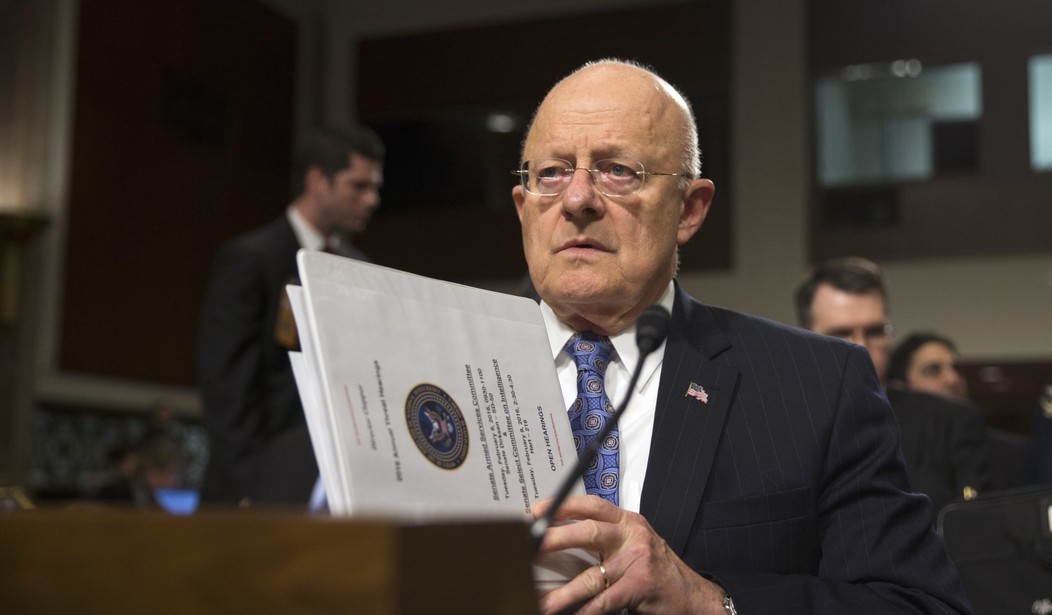WASHINGTON — The director of national intelligence cautioned at a gathering of intel and national security professionals that the transition to the next presidential administration will be “a very vulnerable time for the country” as “we’re facing the most complex and diverse array of global threats that I’ve seen in my 53 years or so in the intelligence business.”
DNI James Clapper noted to the Intelligence & National Security Summit on Wednesday that “about the only thing we’ll be rolling out the door in the next four months is me.”
The next president, he said, will be greeted by “a world of unpredictable instability, in which two-thirds of the nations around the world are at some risk of instability in the next few years.”
Case in point: Africa. Between 2010 and 2015, the DNI noted, 52 presidential elections were held on the continent of 1.1 billion people and there were more than 1,130 armed conflict events resulting in “conservatively” over 50,000 fatalities.
Clapper added that climate change will be an “underlying meta-driver of unpredictable instability” in the coming decades.
“Major population centers will compete for ever-diminishing food and water resources and governments will have an increasingly difficult time controlling their territories,” he said. “And so because of all of these factors, after ISIL’s gone, we can expect some other terrorist entity to arise and a cycle of extremism which will continue to control us for the foreseeable future. And by the way, our more traditional adversaries like Russia and China and Iran and North Korea will continue to challenge us.”
The director noted that evolving technology could be friend or foe, as “self-driving cars and 3-D printing have the potential to revolutionize our lives for the better or they could present vulnerabilities that are very hard to predict.”
“I know a lot of people of been feeling uncertainty about what will happen with this presidential transition. Been a lot of catastrophizing, if I can use that term, in the 24-hour news cycle, and of course, on social media. So I’m here with a message. It’ll be OK,” Clapper said.
The first meeting at the White House, led by the White House Chief of Staff Dennis McDonough, between the administration and the two campaigns’ transition teams occurred about two weeks ago, and Clapper said he was “struck by how sober and professional and courteous and civil the conversation was.”
The director said the current intelligence community “represents a pillar of stability during such a transition.”
“…That’s why we’re already briefing the candidates to help reduce uncertainty for our next president, whoever it is, so that he or she will step into the Oval Office with as good an understanding of our complex and uncertain world as we can help provide.”
Clapper stressed that the presidential daily briefing is not being shared with Donald Trump or Hillary Clinton.
“A completely separate team produces and coordinates the cross-agency effort to brief the candidates. And in fact, in our effort to try to make sure that there’s no political influence on the briefings, the candidate briefing team does not coordinate with the White House and only career intelligence officers give the briefings, not political appointees like me,” he said.
“Similar to prior elections, we set ground rules months before the briefings started, which the White House concurred with, on June 22. And the IC has essentially been operating independently since then. We have a list of topics that we offer to each candidate. They can ask for briefings on any or all of them. They can also ask for briefings on new topics. If we give briefs on new topics, we’ll make sure both candidates have a chance to get those same briefs. Otherwise we don’t tell either campaign or the public what happens in those briefings: not what topics each candidate shows interest in or gets briefed on, not how either candidate reacts and not what questions get asked.”
Clapper told of briefly meeting President Kennedy as a young Air Force ROTC cadet, about a year before beginning his intelligence career.
“There’s simply no way you could have told me in 1962 that I’d spend six-plus years briefing our nation’s first African-American president,” he added. “That’s something my parents would have been astounded by, my father certainly, and my mother would have been very proud of.”
“…We’re better, or like to think we are more integrated than we were six years ago when Vice President Biden swore me in as the DNI; although I’m going to leave it for somebody else to grade my term paper.”









Join the conversation as a VIP Member